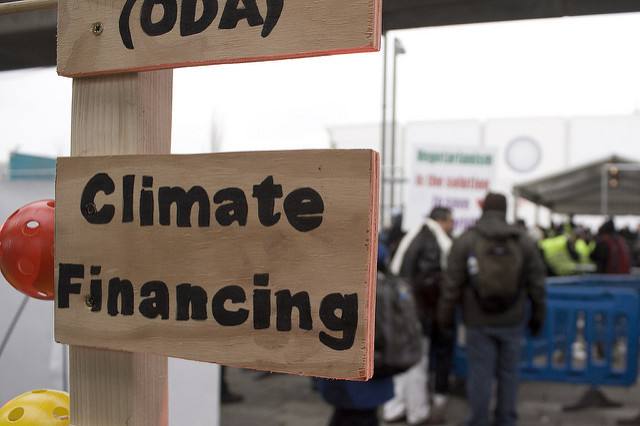Key highlights
- Nigeria needs climate financing to tackle climate change effects in the country.
- Nigeria needs to increase infrastructure and develop more skills in relation to tackling climate change effects.
- All stakeholders involved in the process must exhibit transparency to access funds from developed countries.
The President of the Association of Environmental Protection and Climate Change Experts, Air Vice Marshal Akugbe Iyamu has said that Nigeria needs to be transparent in its climate change activities to access climate financing.
Speaking during a recent interview via Arise TV, Iyamu said that although developed countries have an obligation to provide funds for developing countries like Nigeria, to fight against climate change, there must be transparency in the process.
According to him, Nigeria’s annual flooding challenges have the tendency to create an economic shutdown and should be addressed. He provided an example with the Kogi state flooding of 2022, which caused a myriad of challenges, leading to economic problems. He said:
“The climate funds are there, but we need to access them. The international management of climate financing has always had three pillars – adaptation, mitigation, and the means of administering those funds.
“We have been carrying the baggage of transparency, the people are asking what are you going to do with the funds when they come? They want to see how you are reducing carbon. The country has done a lot already with the sovereign green bond issuances of 2017 and 2019. However, climate change has become diplomacy and advocacy. It is now a question of what you are bringing to the table.
“The use of fossil fuels will continue to be there but when you talk of Nigeria, a report was just released a couple of days ago, out of 80% of renewable energy investments in the world, Nigeria had only a 1% share of those investments.”

It is important to note at this point, that the International Energy Agency (IEA) estimates that switching to gas-fired generation today in Africa would produce 45-55% less greenhouse gas emissions than coal. Also, replacing kerosene and diesel with gas in industries and homes can also reduce emissions by a third. This is because natural gas has a clean burning profile and low or zero emissions of the main air pollutants.
Also speaking on Nigeria’s capacity to reduce carbon emissions and gain access to climate financing through renewable energy investments and mitigation, Iyamu said there are other factors the country needs to exhibit to show readiness for implementation of projects that tackle climate change in the country. He said:
“Nigeria has two out of the seven longest rivers in Africa, we have 854 shorelines, and we have the biggest mangrove – these are sellable environmental products, but we must also continue to increase infrastructure and develop skills. For the climate environment, countries are moving from the mundane to the substantial and from commission to ministries of climate change and Nigeria cannot be left behind.”
What you should know
In November 2022, Nigeria’s Vice President, Prof. Yemi Osinbajo, said Africa receives $29.5 billion annually as opposed to the $277 billion it needs for climate financing.
Source: Nairametrics




